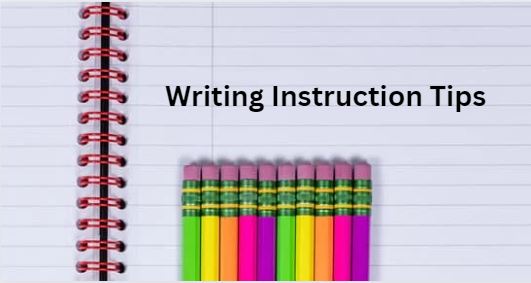
Writing is an important but challenging skill to teach. Try some of these tips.
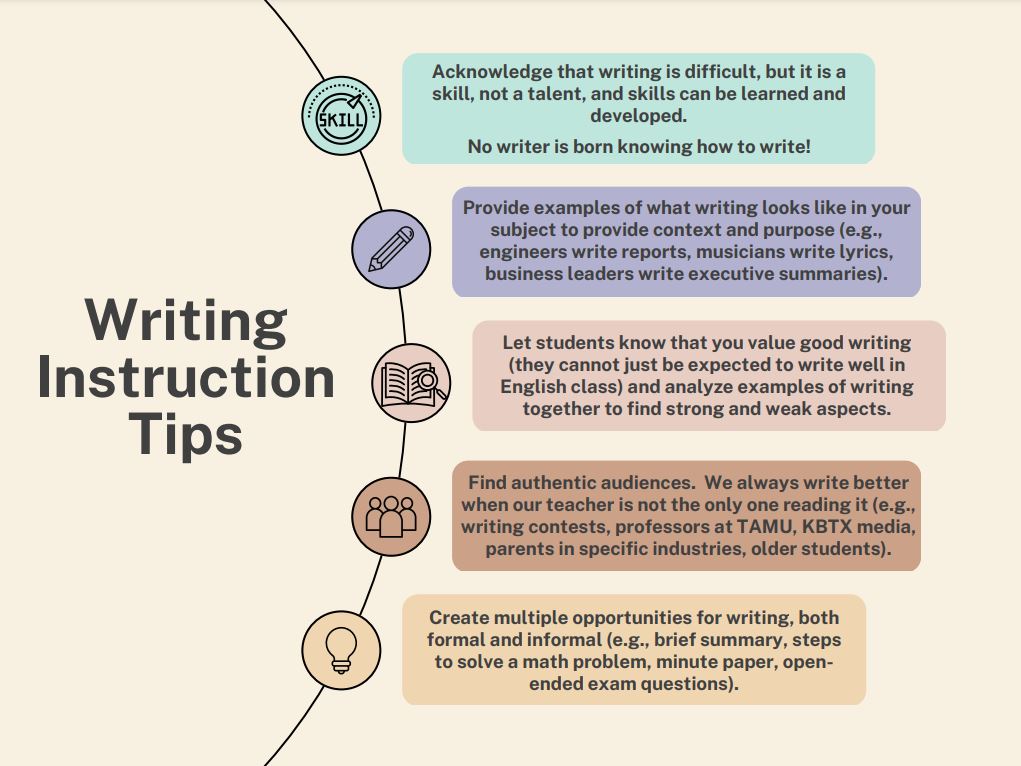
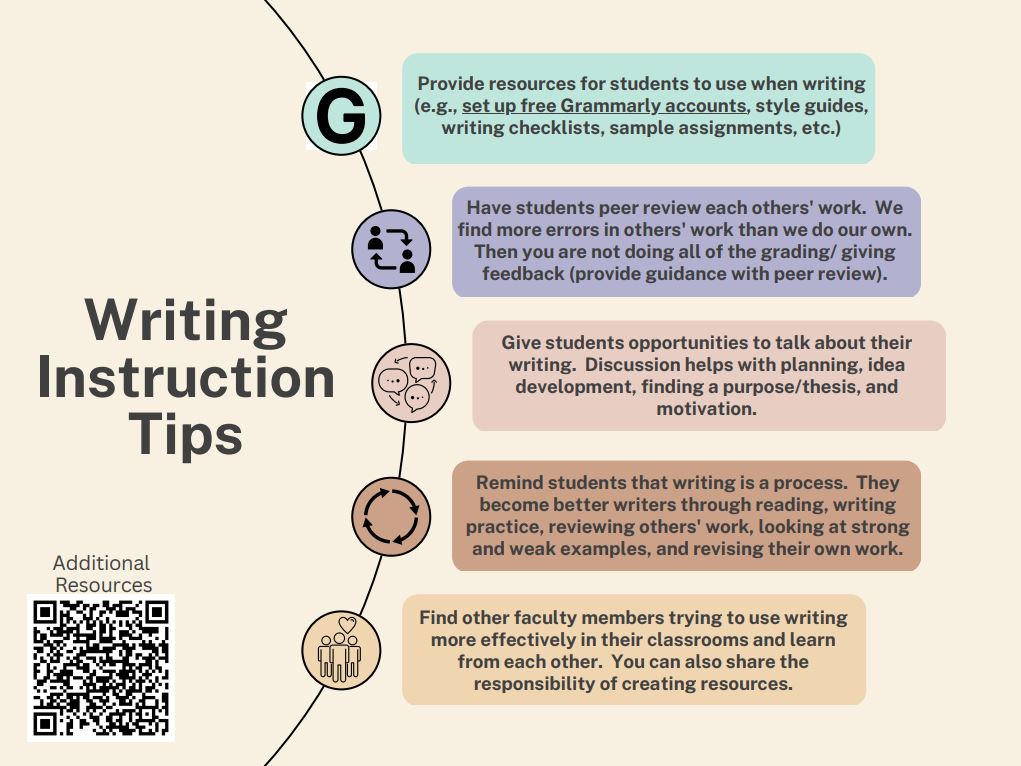

Writing is an important but challenging skill to teach. Try some of these tips.


Bit #41 – Active Voice

You are probably faced with finishing at least one, if not multiple, writing assignments at various points in your career. Your time may be limited, so I wanted to give you a quick tip to help enhance your writing in the last stretch. What is this magic tip, you may ask? Using Active Voice!!! If you increase the use of active voice in your writing, your work will transform.
Active voice makes your meaning clear for your audience (which is crucial for successful writing) and keeps your sentences from becoming complicated or wordy. Good academic writing primarily uses passive voice ONLY in the methodology section and nowhere else. I know…that is easier said than done, but there are ways to improve our use of active voice in our writing.
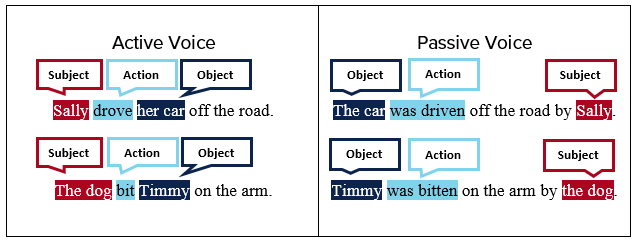
In writing, we should use active voice as much as possible. When you edit your work, you should dedicate significant time to checking for passive verbs/voice and fixing the sentences, so they become active.
There are multiple ways to edit your work to increase the use of active voice. Practice is best because using active voice will become more automatic and more effortless as you go. The following videos will help you learn strategies for increasing active voice in your writing. (The first video is Kristin Sainani from Stanford….her videos have changed my life) 🙂.
Watch these videos and see how you can enhance your use of active voice in your writing.
Potential vs. Kinetic Energy

There are two main types of energy – potential and kinetic. Potential energy is energy that is stored, while kinetic energy is the energy an object in motion possesses.
In life, we talk a lot about our potential and often feel defined by perceived potential. Potential is actually defined as “latent abilities that may be developed and lead to future success.” While potential is good, potential without action gets us nowhere.
Instead of talking about our potential, maybe we should focus on our action – the kinetic side. What action are we taking to get where we want to be?
In The Purpose Factor (click on pic for more information), Brian and Gabrielle Bosche talk about how “We are capable of great things, but until potential turns into practice, our impact is invisible.”

As you think about your writing this week, ask yourself, are you storing energy (potential) or taking action (kinetic)? How can you take more action toward increased writing productivity this week?
Bit #38 – Building Habits

Writing success revolves around building habits. The healthier your writing habit, the more productive your writing. Buy why?
Neuroscience research shows that we have limited working memory space. We cannot do anything to increase our working memory capacity, but by creating habits and routines, we move things that would normally take up our working memory to our long-term memory. This process frees up space in our working memory.
What writing habits do you need to begin strengthening today? Here are some good ones to consider.
If you want to learn more about building habits, I highly recommend “Atomic Habits” by James Clear (click book below for more information). This book talks about small changes you can make today that will drastically impact your success (in writing and life).


Bit #37 – Writing Myths
Writing myths have been created over time to justify lacking productivity. We are going to debunk some of those myths today.
Myth #1 – You cannot write for short periods of time.
Truth – Writing for short, scheduled periods of time (i.e., homeopathic writing) is the most productive way to write. A magical mindset shift happens when you only have to dedicate short blocks of time to your writing. Barbara W. Sarnecka, author of The Writing Workshop: Write More, Write Better, Be Happier in Academia (click book below to learn more), calls these short bursts of writing productivity “writing like a NINJA.”

Sarnecka explains,
“…people stop using their common sense when they think about writing. If you were told on June 1 that you had to walk 90 miles by June 30, would you choose to walk three miles a day for 30 days, or would you wait until the evening of June 30 and try to walk the whole 90 miles at once? If you wanted to buy something for $10,000, would you start putting aside a little bit of money every week, or would you hope to find $10,000 just lying around one day?”
When you write like a ninja, you find short times to write when previously none existed.
Writing for long periods of time in itself is not bad, but few people can do it successfully and come out unscathed. If you are one of these incredible few, keep at it. For the rest of us, we need to schedule small blocks of time to write each day. Let’s face it; we are lucky to find small blocks of time to write. How would we ever consistently find large blocks?
Myth #2 – You have to wait for inspiration to write.
Truth – The term inspired means “breathed into.” While theoretically serene, practically, inspiration is entirely out of our control. Everyone loves to write when it is easy/inspired. Honestly, successful writers write even when it is hard. Find ways to create your own inspiration.
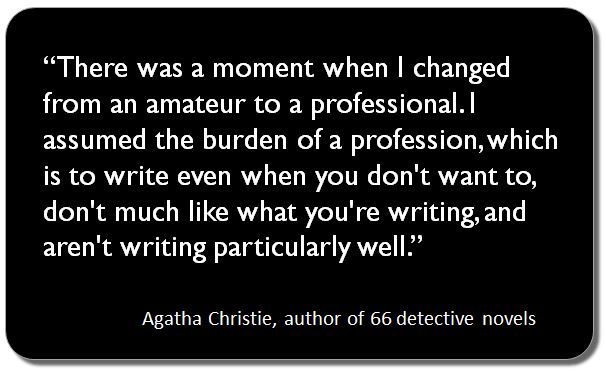
Myth #3 – Writing and thinking are separate.
Truth – Writing is a form of thinking. Most often, the best thinking happens on paper rather than in your head. The most significant difference between eminent scholars and everyone else is the overall volume of text they produce. As Sarnecka notes, “…no one seems to have better ideas than anyone else – it’s just that some people produce more ideas than others: more great ideas, more terrible ideas, more average ideas.”
So, take action and start generating ideas today – not just one idea (e.g., one research project, one presentation idea, one collaboration effort), but a dozen. Pick your best ideas and develop them further. Trash the rest or save them for another day.
Don’t fall victim to these writing myths. You know the truth; now act on it! 🙂

Bit #36 – Hear Your Words
There are many ways to revise and edit your writing. One of the best is to have someone read your words aloud to you. When you hear your words, you notice more areas that need revision than you do when you read your words.
While you can read your writing aloud to yourself (and you should), the process is much more successful if someone else reads your writing to you. Yes, I realize the thought of hearing your words out loud can be frightening, but it is worth it.
There are a few ways to hear your words. The most effective is to have an actual person read your work to you. Find a friend or colleague and ask them to read part of your work to you.
If you cannot find an actual person to read your work aloud (or you cannot bring yourself to do it), there are programs that will read your writing for you. These computer programs have computer-sounding voices, but they are better than nothing. Adobe and MS Word 365 are two of the best. Both programs have a “read” feature. In Adobe, under “View,” click the tab to Read out loud. In MS Word 365, you can find the “read” option under the Review tab.
To take it a step further, ask the person to read one paragraph at a time, and after finishing each paragraph, have them tell you the main/key idea of the paragraph. This action helps you determine if your message is clear and your paragraphs are organized well.


Bit #35 – Academic Crushes

The term crush is used in various ways – Crush soda (popular in the ’80s), CRUSHING IT!, infatuation indicator, etc.
In the writing context, most aspects of the term apply.
For today’s bit, we will focus on the infatuation side. Who are the writers you admire?
I have two academic crushes. The first is Michael Wesch (a conversation for a different day), and the second is the fantastic academic writer Helen Sword.
I have mentioned Helen Sword before, but I want to make you aware of the resources she offers to help develop your writing behaviors.
Books (click the links to learn more):
YouTube Channel – Helen’s Word: https://www.youtube.com/channel/UCuYm6W2-gk9nQc2LTy2uwuA
Which offers:
Continue to build your writing behaviors by finding people who inspire you to write. Find out what they do to be successful and CRUSH IT! in their writing. Pattern your behaviors after theirs if they work for you. Role models in academia are a MUST!

Bit #34 – Critical Reading
Writing well is grounded in reading well. Good writers are avid readers. Reading, though, is more than just scanning the words; we must read critically to gain knowledge, support our research, fill gaps, and increase our academic competencies.
How do we read critically? The steps below might help.
Use these steps this week when you are reading this week.
Bit #33 – Bite-Size Writing Support

OR  OR
OR
???
As writers, we owe it to ourselves to invest in our writing development. Unfortunately, we do not always make time to learn something outside our discipline.
Instead of feeling guilty about not having time, we should shift our thinking and enhance the behavioral aspect of our writing base with bite-size professional development options.
In their book 90 Days 90 Ways (click the picture below for more information), Pat Goodson and colleagues provide daily, bite-size writing support. Each day is at most one page long and full of inspiration, tips, and strategies for academic writers.

Invest in yourself today with a bite-size snack, writing PD, or both. You deserve it!